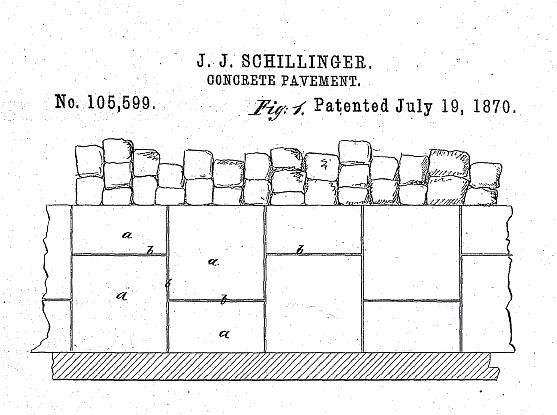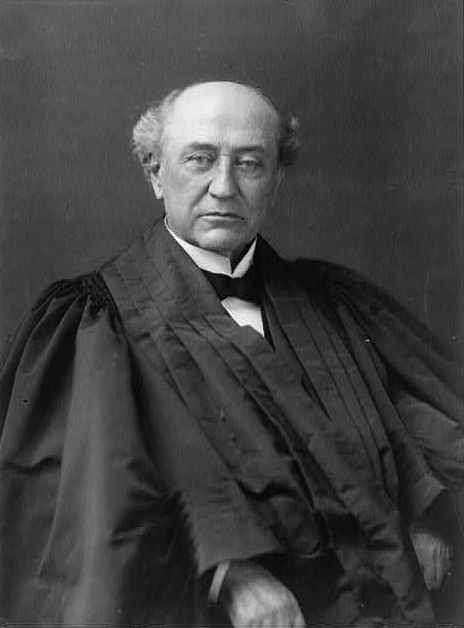Schillinger v. United States on:
[Wikipedia]
[Google]
[Amazon]
''Schillinger v. United States'', 155 U.S. 163 (1894), is a decision of the 
 Justice Brewer wrote the majority opinion. Justice Harlan, joined by Justice Shiras, dissented.
The doctrine of
Justice Brewer wrote the majority opinion. Justice Harlan, joined by Justice Shiras, dissented.
The doctrine of
United States Supreme Court
The Supreme Court of the United States (SCOTUS) is the highest court in the federal judiciary of the United States. It has ultimate appellate jurisdiction over all U.S. federal court cases, and over state court cases that involve a point o ...
, holding (7–2, per Justice Brewer) that a suit for patent infringement cannot be entertained against the United States, because patent infringement is a tort
A tort is a civil wrong that causes a claimant to suffer loss or harm, resulting in legal liability for the person who commits the tortious act. Tort law can be contrasted with criminal law, which deals with criminal wrongs that are punishable ...
and the United States has not waived sovereign immunity
Sovereign immunity, or crown immunity, is a legal doctrine whereby a sovereign or state cannot commit a legal wrong and is immune from civil suit or criminal prosecution, strictly speaking in modern texts in its own courts. A similar, stronger ...
for intentional torts.

Background
Apatent
A patent is a type of intellectual property that gives its owner the legal right to exclude others from making, using, or selling an invention for a limited period of time in exchange for publishing an enabling disclosure of the invention."A ...
issued to John J. Schillinger for an improvement in concrete
Concrete is a composite material composed of fine and coarse aggregate bonded together with a fluid cement (cement paste) that hardens (cures) over time. Concrete is the second-most-used substance in the world after water, and is the most wid ...
pavement. Later, the Architect of the Capitol
The Architect of the Capitol (AOC) is the federal agency responsible for the maintenance, operation, development, and preservation of the United States Capitol Complex. It is an agency of the legislative branch of the federal government and is ...
invited proposals for a concrete pavement in the capitol grounds, and entered into a contract
A contract is a legally enforceable agreement between two or more parties that creates, defines, and governs mutual rights and obligations between them. A contract typically involves the transfer of goods, services, money, or a promise to tr ...
for the laying of such pavement according to plans and specifications prepared by the Architect, which did not refer specifically to the patent.
Schillinger then sued under the patent to recover damages from the United States for the wrongful use of the invention in the construction of the pavement. The Court of Claims held that there was no contract, either expressed or implied, on the part of the government for the use of such patent, and dismissed the petition as outside of the jurisdiction of the court.
Opinion of the Court
 Justice Brewer wrote the majority opinion. Justice Harlan, joined by Justice Shiras, dissented.
The doctrine of
Justice Brewer wrote the majority opinion. Justice Harlan, joined by Justice Shiras, dissented.
The doctrine of sovereign immunity
Sovereign immunity, or crown immunity, is a legal doctrine whereby a sovereign or state cannot commit a legal wrong and is immune from civil suit or criminal prosecution, strictly speaking in modern texts in its own courts. A similar, stronger ...
provides that the United States cannot be sued without its consent. When Congress consents to suits against the government, it has "an absolute discretion to specify the cases and contingencies in which the liability of the government is submitted to the courts for judicial determination." The courts may not "go beyond the letter of such consent," no matter how beneficial they may deem it to do so, for only Congress has that power.
Until the creation of the Court of Claims in 1855, the only recourse of claimants that the United States had wronged them was to appeal to Congress. The jurisdictional statute for the court defined the claims that could be submitted to the Court of Claims as follows:
The Court of Claims shall have jurisdiction to hear and determine all claims founded upon theThe Court of Claims thus has no jurisdiction over claims against the government for mere torts. To be sure, the Constitution forbids the taking of private property for public uses without just compensation. But that does not create a claim founded upon the Constitution of the United States and within the jurisdictional grant of the Court of Claims. Congress never intended that every wrongful seizure of property by an officer of the government, the Court explained, would expose the government to an action for damages in the Court of Claims, for the statute expressly excludes tort actions and that exclusion would be meaningless under the foregoing broad reading. That Schillinger's action was one sounding in tort is clear, the Court said, for the petition charges a wrongful appropriation by the government, against the protest of the claimants, and prays to recover the damages done by the wrong. There is no express or implied contract—no statement tending to show a "coming together of minds" in respect to anything. The Court therefore concluded:Constitution of the United States The Constitution of the United States is the supreme law of the United States of America. It superseded the Articles of Confederation, the nation's first constitution, in 1789. Originally comprising seven articles, it delineates the natio ...or any law of Congress …or upon any contract, expressed or implied, with the Government of the United States, or for damages …in cases not sounding in tort, in respect of which claims the party would be entitled to redress against the United States … if the United States were suable.
Do the facts, as stated in the petition or as found by the court, show anything more than a wrong done, and can this be adjudged other than a case "sounding in tort"? We think not, and therefore the judgment of the Court of Claims is affirmed.
Subsequent developments
Congress subsequently passed 28 U.S.C. § 1498, which permits owners ofintellectual property
Intellectual property (IP) is a category of property that includes intangible creations of the human intellect. There are many types of intellectual property, and some countries recognize more than others. The best-known types are patents, cop ...
rights such as patents, copyright
A copyright is a type of intellectual property that gives its owner the exclusive right to copy, distribute, adapt, display, and perform a creative work, usually for a limited time. The creative work may be in a literary, artistic, educatio ...
s, and mask work
Layout designs (topographies) of integrated circuits are a field in the protection of intellectual property.
In United States intellectual property law, a "mask work" is a two or three-dimensional layout or topography of an integrated circuit ...
s to sue for "just and entire compensation" when the United States uses such intellectual property rights.
The United States Court of Appeals for the Federal Circuit
The United States Court of Appeals for the Federal Circuit (in case citations, Fed. Cir. or C.A.F.C.) is a United States court of appeals that has special appellate jurisdiction over certain types of specialized cases in the U.S. federal court ...
recently held that no action against the United States lies for patent-related cases not fitting squarely within the language of § 1498, because sovereign immunity has not been waived for intentional torts and, consistent with ''Schillinger'', patent infringement is not a taking of property under the Fifth Amendment. The Federal Circuit held that patent rights are not property interests under the Fifth Amendment, reasoning that § 1498's "new and limited waiver of sovereign immunity" would have been unnecessary if Congress intended for patents to be compensable rights under the Takings Clause
The Fifth Amendment (Amendment V) to the United States Constitution addresses criminal procedure and other aspects of the Constitution. It was ratified, along with nine other articles, in 1791 as part of the Bill of Rights. The Fifth Amen ...
. The Federal Circuit so ruled despite a number of obiter dicta
''Obiter dictum'' (usually used in the plural, ''obiter dicta'') is a Latin phrase meaning "other things said",''Black's Law Dictionary'', p. 967 (5th ed. 1979). that is, a remark in a legal opinion that is "said in passing" by any judge or arbitr ...
in previous decisions that assumed that patent infringement was a taking of property. The Federal Circuit's ruling is consistent with current Supreme Court takings jurisprudence, however, because patent infringement does not usually deprive the patentee of substantially all of the value of the patent.''See'' (no taking because NYC's action did not deprive Penn Central of substantially all of the value of Grand Central Station).
References
External links
* * {{USArticleIII United States Constitution Article Three case law United States federal sovereign immunity case law United States patent case law United States Supreme Court cases United States Supreme Court cases of the Fuller Court 1894 in United States case law